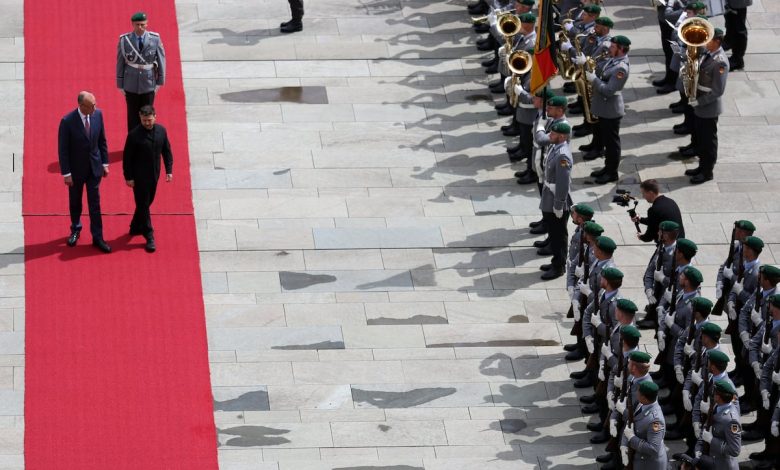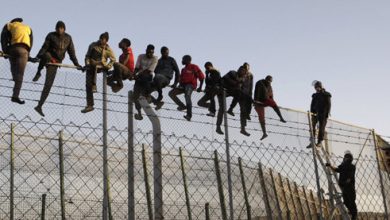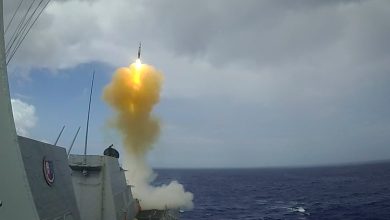Germany vows to underwrite Ukraine’s long-range missile production

THE HAGUE, Netherlands — German Chancellor Friedrich Merz said his country would pay for Ukraine to build long-range missiles at home, days after the leader announced a lift on range restrictions on Kyiv’s Western-supplied weapons.
The remarks came during Ukrainian President Volodymyr Zelenskyy’s short-notice visit to Berlin on Wednesday. During a press conference, the leaders also announced the start of intergovernmental German-Ukrainian consultations later this year, as well as deeper defense industry ties.
A memorandum of understanding between the countries, signed by the two defense ministers, governs the cooperation details.
Investing in Ukraine will enable Kyiv to have a “substantial” number of long-range weapons this year, the German defense ministry said in a statement, with the first deliveries set to take place in just a few weeks’ time.
These declarations come after Merz announced on Monday that Western backers would no longer attach range limitations to their weapons donations, though it was unclear which systems he was referring to other than Germany’s own. Known suppliers of such arms also include the U.K., France and the United States. Russia lashed out following the announcement, calling it a “dangerous” decision.
Speaking alongside Zelenskyy on Wednesday, Merz hailed “the beginning of a new form of military-industrial cooperation between our countries, which has very great potential.”
Germany’s defense ministry said the latest aid package was worth around €5 billion ($5.65 billion) and was concluded “in light of the current, most severe Russian aerial attacks since the beginning of the offensive war against Ukraine.”
In addition to the investment in Ukrainian arms manufacturing, Germany will deliver more air defense systems and replenish Kyiv’s stocks of munitions, according to a government statement. Germany will also provide financial support for battlefield maintenance conducted in Ukraine, as well as the country’s military and satellite communications infrastructure.
Absent from the press conference was any mention of Germany’s own Taurus long-range cruise missile, considered one of the most advanced globally. For well over a year, there have been heated debates in Berlin about whether to deliver the weapons for Kyiv to use in the country’s defense. The previous government under Chancellor Olaf Scholz had opted against such a move out of fear that German officials would have to remain involved in firing it, thereby drawing Berlin directly into the war.
Despite the reticence, Germany has been a key backer of Ukraine in its defense against Russia’s invasion, which commenced in earnest in February 2022. It is second only to the United States in the quantity of military aid it has delivered.
“We will continue our military support, and we will expand it,” said Merz after meeting with his Ukrainian colleague.
Details are likely to remain scant. The new German government has thrown to the wind the transparency fostered by the Scholz administration and said it will no longer share which weapons it sends to Ukraine. A website tallying German weapons deliveries has since been archived, and the chancellor said during the press conference that he would not provide any further specific details about military assistance and cooperation.
Linus Höller is a Europe correspondent for Defense News. He covers international security and military developments across the continent. Linus holds a degree in journalism, political science and international studies, and is currently pursuing a master’s in nonproliferation and terrorism studies.







